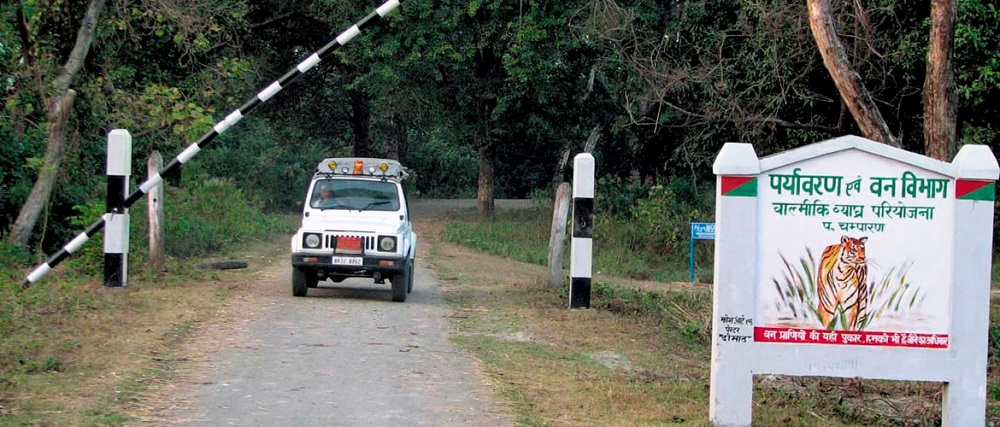Permissions and Prohibitions of Valmiki Tiger Reserve

Valmiki Tiger Reserve marks the easternmost extent of the Himalayan Terai forests in India and stands as Bihar's sole tiger reserve. Nestled in the Gangetic Plains bio-geographic zone, the forest combines bhabar and terai tracts. Named after the revered sage Valmiki, attributed to the epic Hindu Ramayana, the reserve is positioned in the north-westernmost part of Bihar's West Champaran district. The district's name, derived from "Champa" and "Aranya," translates to Forest of Champa trees. The reserve offers three distinct entry points.
A primary draw of Valmiki Tiger Reserve is its Bengal tiger population, making it one of Bihar's last bastions for these majestic big cats. Beyond tigers, the reserve is a haven for birdwatchers, boasting a recorded presence of over 250 bird species, further enhancing its appeal as a biodiversity-rich destination. These species of fauna and avifauna can be spotted by conducting a Valmiki Jeep Safari Booking, which takes the visitor deep inside the forest to offer the true essence of the tiger reserve.
However, while embarking on the enthralling jeep safari at Valmiki Tiger Reserve one must consider the rules, regulations and prohibitions, as directed by the national park authorities to maintain the decorum of the reserved region. Let’s have a look!
What you should do?
- Wild animal sightings are unpredictable; exercise patience and embrace the wilderness.
- Maintain total silence and discipline to increase the chances of spotting wildlife.
- Signal others discreetly with hand gestures if you observe any animals; avoid shouting.
- Blend with the environment by wearing khaki, brown, or green outfits; avoid bright colours.
- Appreciate the colours and sounds of nature; refrain from using strong perfumes.
- Wear jungle boots for trekking safety; carry an ample supply of drinking water.
- Give the right of way to animals, especially when in a vehicle; respect their movement.
- Carry a first aid kit with common medicines for safety precautions.
- Respect animals and their habitats; maintain a reasonable distance to avoid provoking them.
- Capture photos without disturbing wildlife; respect local customs.
- Responsibly dispose of waste, taking back all non-biodegradable litter, and leaving campsites litter-free.
- Adhere to speed limits, avoid using the horn, and be cautious not to startle animals.
- Follow gate timings strictly and obey instructions from staff and guides.
What you should not do?
- Avoid speaking loudly or playing high-volume music to maintain a serene environment.
- Refrain from littering; ensure the surroundings remain clean and free from debris.
- The entry of the visitors is strictly prohibited beyond the safari timings and after sunset.
- Strictly adhere to the national park's policies, refraining from consuming alcohol or entering Valmiki Tiger Reserve under its influence.
- Avoid teasing or causing any disturbance to animals within the reserve.
- Refrain from extending hands or attempting to feed any wildlife.
- Do not collect flora and fauna in the form of cuttings, seeds, or roots.
- Avoid requesting the driver to stop the vehicle for an extended period within the reserve.
- Prohibit the lighting of fires or smoking inside protected areas to prevent forest fires, as per the Wildlife (Protection) Act, 1972.
- Music and musical instruments are not allowed during trekking and safari visits.
- Strictly adhere to the prohibition of carrying guns, firearms, and inflammable materials, as per the Wildlife (Protection) Act, 1972.
- Consumption of eatables is prohibited while in the forest to maintain the park's integrity and regulations.